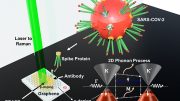
A study by Johns Hopkins Medicine and NIH’s National Institute on Aging on 40 older adults with obesity and insulin resistance found that both intermittent fasting and a USDA-approved healthy diet improved brain function and metabolic health, with intermittent fasting showing slightly better results in cognitive improvements.
Recent research reveals that intermittent fasting and a standard healthy diet both enhance brain function in obese adults with insulin resistance, with intermittent fasting yielding better cognitive gains.
Researchers from Johns Hopkins Medicine and the National Institute on Aging at the National Institutes of Health report findings from their study involving 40 older adults with obesity and insulin resistance. Participants were randomly assigned to follow either an intermittent fasting regimen or a standard healthy diet endorsed by the U.S. Department of Agriculture (USDA). The study provides significant insights into the potential brain health benefits of both dietary approaches.
Insulin resistance is a hallmark of type 2 diabetes and is common in people with obesity. Studies suggest that people with insulin resistance are at higher risk than usual for Alzheimer’s disease and other cognitive impairments. As a result, various weight loss regimens figure widely as ways to reduce the risk of these metabolic and brain disorders.
Study Findings and Methodology
Previous Johns Hopkins research on animal models of diabetes and Alzheimer’s disease showed that intermittent fasting can improve cognition and insulin sensitivity. The new study, published June 19 in Cell Metabolism, tested the effects of intermittent fasting on women and men at risk for cognitive impairment, and it offers a “blueprint,” the authors write, for using a wide panel of biomarkers to assess dietary impact, including analysis of extracellular vesicles — tiny packets of materials shed from neurons, which are types of brain cells that send messages. Such neuron-derived extracellular vesicles are shed into circulating blood and were collected from the new study’s participants during an eight-week period while each person followed one of the two diets.
The results revealed that both types of diet plans had benefits regarding decreasing insulin resistance and improving cognition, with improvements in memory and executive function with both diets, but more strongly with the intermittent fasting diet, according to Mark Mattson, Ph.D., adjunct professor of neuroscience at the Johns Hopkins University School of Medicine and former chief of the laboratory of neurosciences at the National Institute on Aging in Baltimore. “Other scientists may want to incorporate the (brain) markers (we used) into additional, larger studies of diet and brain health,” Mattson says.
Research Techniques and Participant Demographics
Because people with obesity and insulin resistance may be more at risk of cognitive impairment and Alzheimer’s disease than people with normal metabolism and body mass index (BMI), Dimitrios Kapogiannis, M.D., chief of the human neuroscience section at the National Institute on Aging and adjunct associate professor of neurology at the Johns Hopkins University School of Medicine, developed a method to isolate neuron-derived extracellular vesicles from blood. His laboratory found molecular evidence of insulin resistance in extracellular vesicles shed from neurons of people with diabetes and Alzheimer’s disease, and because blood samples are relatively easy to collect, they were considered good candidates for widespread use.
To test the effects of the two diets on brain function biomarkers, participants in the new study were recruited between June 2015 and December 2022, and four in-person assessments were completed at facilities run by the National Institute on Aging at MedStar Harbor Hospital in Baltimore. Among the participants, 40 completed their eight-week study. Also, 20 were assigned to an intermittent fasting diet that restricted calories to one-quarter of the recommended daily intake for two consecutive days per week, and they followed the USDA’s healthy living diet — which consists of fruits, vegetables, whole grains, lean proteins, low-fat dairy products and limited added sugars, saturated fats, and sodium — for the remaining five days. The USDA’s healthy living diet was assigned to 20 other study participants each day of the week.
The average age of participants in both groups was 63, and 25 were white, 14 were Black, and one was Hispanic. There were 24 men and 16 women. All were obese and had insulin resistance.
The researchers found that both diets had equally positive effects on reducing insulin resistance markers in extracellular vesicles, improving BrainAGE (a measurement of the brain’s biological age using structural MRI data), and lowering glucose concentration in the brain. Reduced glucose concentration is a corollary of higher glucose use.
Both diets also improved customary measurements of metabolic health, including weight, BMI, measurement of waist circumference, blood lipids such as cholesterol, and insulin resistance. Executive function and memory (which are a set of mental skills that helps with planning and achieving goals) improved approximately 20% more in the intermittent fasting group than in the healthy living diet group.
Observations and Health Cautions
A few study participants reported modest side effects including constipation loose stools, and occasional headaches.
The researchers also saw increased levels of a neurofilament protein (a structural protein in neurons) in both diet groups, but mainly in the intermittent fasting group. What that means regarding brain health is unclear.
“This is a marker to continue to evaluate in further studies,” says Mattson. “Neurons release a lot of proteins, and one idea is that intermittent fasting may be causing some kind of neuroplasticity (a change in structure) in neurons, causing the release of neurofilament proteins.”
The Johns Hopkins researchers and others caution that people interested in intermittent fasting should plan carefully with a healthcare practitioner because it could be harmful to some people, including those with type 1 diabetes and eating disorders.
Reference: “Brain responses to intermittent fasting and the healthy living diet in older adults” by Dimitrios Kapogiannis, Apostolos Manolopoulos, Roger Mullins, Konstantinos Avgerinos, Francheska Delgado-Peraza, Maja Mustapic, Carlos Nogueras-Ortiz, Pamela J. Yao, Krishna A. Pucha, Janet Brooks, Qinghua Chen, Shalaila S. Haas, Ruiyang Ge, Lisa M. Hartnell, Mark R. Cookson, Josephine M. Egan, Sophia Frangou and Mark P. Mattson, 19 June 2024, Cell Metabolism.
DOI: 10.1016/j.cmet.2024.05.017
The research was supported by the National Institutes of Health’s National Institute on Aging (ZIAAG000966, ZIAAG000975).









The United States Department of Agriculture (USDA) is the American regulator of agriculture and food production. Combined with regulatory-capture by corporations, the USDA is responsible for marketing domestic agricultural or agro-industrial products. Human health is not a direct part of their mandate. With that in mind, it’s no surprise that interrupting their recommended diet improved health.
I’m interested in intermittent fasting, but have not yet seen a scientific consensus, and look forward to being convinced for or against it.
Good point, Hottan, but, as a now eighty year old lay American male with a family history of allergies and dementia who’s been battling mostly mild externally imposed chronic disease for forty-three years and counting and making life/mind saving discoveries along the way, I’d like to inform you too of what the common major flaws in the medical research leading to this article were; food allergy and US FDA approved food poisoning ignorance and incompetence. My (Dr. Arthur F. Coca’s, by 1935) kind of food allergies are not yet recognized, researched, practiced or taught as true allergies by mainstream medicine. And, beginning in early 1981 following the 1980 FDA approval of the expanded use of added artificially cultured “free” (can cross the blood brain barrier) monosodium glutamate (MSG) as an ‘alleged’ “flavor enhancer,” I became mysteriously (to my doctor), seriously ill and chronic fatigue preceded a more sedentary lifestyle. Since, medically abandoned “cytotoxic blood testing for food allergies” in late 1981 informed me I had numerous food allergies and at-home experimentation revealed both proteinaceous foods were the worst offenders and avoiding them and fasting resulted in more energy and I mostly (never completely) recovered within about a month. I didn’t learn of the true toxicity of added MSG until the summer of 2000 and by 2009 I was experiencing a serious calcium deficiency because of my dairy avoidance practices and standard blood serum testing for calcium being unreliable. More on the “About” page of my non-monetary video channel: https://odysee.com/@charlesgshaver:d?view=about